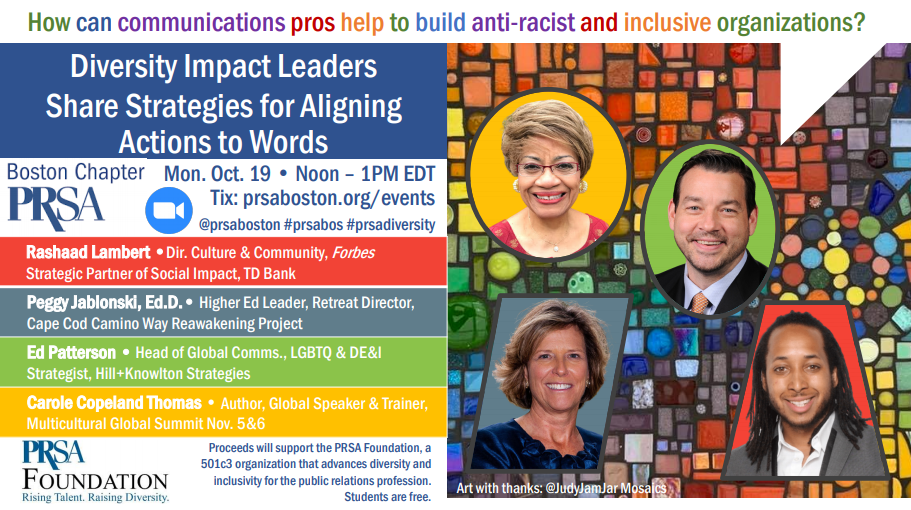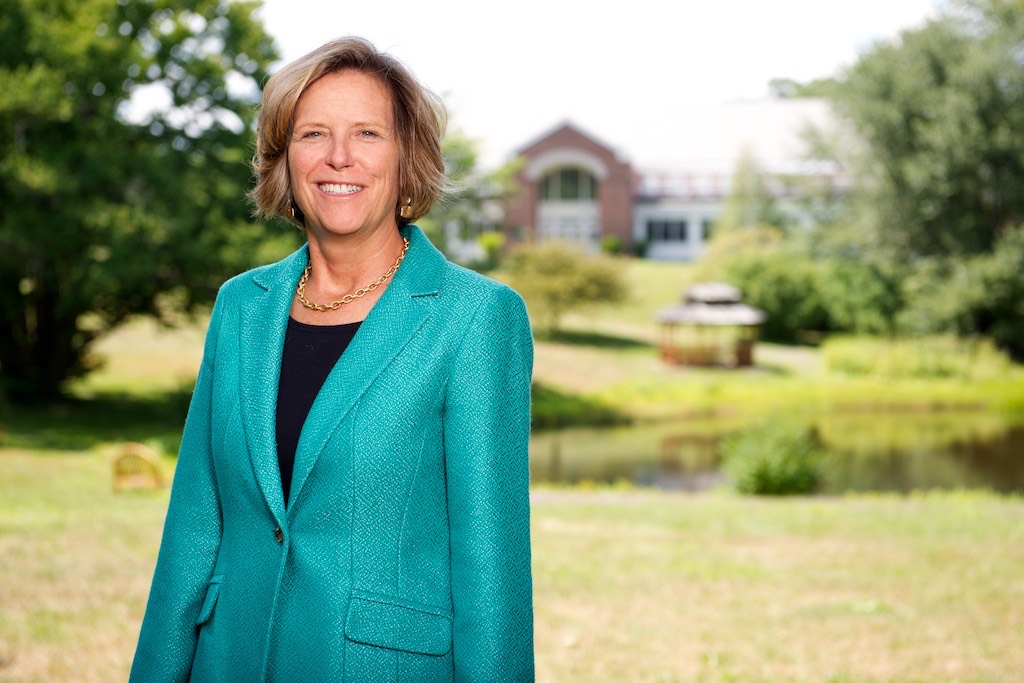

Peggy Jablonski, Ed.D.
In 2020, this career university administrator turned consultant embarked on a compelling personal journey of racial awakening – the Cape Cod Camino Way Project – to understand racial and social justice in her own backyard and inform her future actions. This proved to be transformative for her work as a leadership coach, particularly for colleges with complex diversity and inclusion issues and nonprofits seeking to broaden their scope of service. In the context of small-group work, Peggy shares insights for an emerging blueprint in how organizations can gain from listening and learning about bias and racial history. This has emerged as a cornerstone for her leadership coaching practice, Jablonski Consulting Group. Peggy’s earned her Ed.D. at Boston University and completed coaching certifications and leadership tenures at Brown University, MIT, UNC at Chapel Hill, and her alma mater, the University of Massachusetts at Amherst.
Loring Barnes, past president and longtime board member for PRSA Boston, recently sat down with Peggy to discuss her walking tour, which is currently being considered for a documentary, and how it has reshaped her perspectives and opened up a new pipeline of workshops.
Q: Why did you create the Cape Cod Camino Way this summer and what did you accomplish through this project?
A: To increase my awareness and deepen my understanding of racial and social justice, I created a walking pilgrimage through every town on Cape Cod, stopping at places of significance and listening to the stories of people I needed to hear.
By doing my own work to understand racism and the connections to other justice issues in my own backyard, such as economic, environmental, religious, LGBTQ and cultural issues, I became more aware of what needs to change and how we need to learn a more inclusive history. Through all that I deepened my commitment to social change. To learn more about the eight weeks of walks, themes and stories, please visit the Facebook page for blogs, videos and questions to expand your views.
I plan to write a book, accept speaking engagements to promote the Cape Cod Camino Way idea and continue to encourage individuals and groups to undertake similar projects to bridge the divide in this country and create much needed dialogue.
Q: Is there such thing as an anti-racist organization?
A: All organizations are inherently biased in one form or another. We have inherited from past generations a racist culture and society, from our educational system to our churches, government and economy. If we understand that our country was founded on the premise of slavery, and the ramifications over generations produced an inherently unequal system, then we can acknowledge that we need to reform all organizations to be supportive of all peoples moving forward. This is a very difficult and complex task, one that will take time to accomplished. And we can all do our part moving forward.
Q: What does it mean to be an “ally?”
A: To be an ally is to be an active participant in challenging the status quo, questioning systems of oppression and bias, speaking out and up to people in power and doing so with diplomacy and grace whenever possible to be heard. To be an ally is an ongoing act—every interaction is a new opportunity to be an ally. White people don’t get to just claim they are an ally because they are good people, or have done some reading. We need to show up on a consistent, regular basis and demonstrate our commitment to people of color.
Q: How do you pace urgency with reality in order to measure movement?
A: We are living in an age of constant change, instant communication and a level of violence that creates urgency for action. Just like our country experienced a convulsion of political, legal and cultural change in the late 60s and early 70s, we again find ourselves on a daily basis confronting systemic issues that need to be addressed. It is a time of urgency, and we do need to pace ourselves and our organizations at the same time as pushing on the levers of change to move forward. It’s like a seesaw; we will be out of balance and return to it again.
Q: So, getting to brass tacks, if someone wants to start from the beginning, what constitute useful metrics of diversity, equity and inclusivity progress?
A: Definitions matter first. Diversity is the presence of difference in a given setting, such as diversity of identities, like race, gender, religion, etc. Numbers of various groups and their positions within the organization are measures of diversity. Inclusion means that people with various identities feel valued, welcomed and leveraged within a team or organization. You can have a diverse team of talent but that doesn’t mean everyone feels welcomed or valued and mentored toward growth. Equity is an approach that ensures everyone has access to the same opportunities. Equity acknowledges that advantages and barriers still exist such that an organization intends to commit to correct his imbalance. Equity is an ongoing process to ensure that people with all identities have the opportunity to grow, contribute and develop, regardless of their identity.
Cape Cod Camino Way @Facebook: LINK
Cape Code Camino Way on NPR: INTERVIEW
Loring Barnes, APR, Fellow PRSA: CCO, Clarity Communications Group
Loring has been leading bold action campaigns, guiding M&A readiness and navigating crises for Fortune brands, government and start-ups for more than 30 years. She founded Clarity as a WBE-certified marketing and PR consultancy coming out of 9/11. The realities of “separate and unequal” became personal for her in high school when a parent’s job took her family to live in Johannesburg during apartheid. Her multicultural and multilanguage campaigns have earned recognition, to include by the White House at a United Nations Special Assembly. Loring visited the Equal Justice Museum in Montgomery, AL within weeks of its 2018 opening to fortify her historical learning on racism. She is a past PRSA Boston president and was inducted into the PRSA College of Fellows in 2017. She was the catalyst for PRSA’s increased efforts on disparities for women in PR’s executive ranks. Loring is only the fifth woman in 135 years to be elected to her town’s top government post and led a successful ballot initiative for the State Legislature to permanently revise the board’s name and all town charter references to be gender neutral. She is an “Alumni to Watch” award recipient of the University of Massachusetts at Amherst and adjunct marketing faculty at Bryant University.
